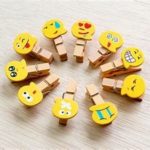
By Barb Minimier
When triggered, we may experience a range of emotions including frustration, anger, resentment, insecurity, jealousy, and defensiveness. We may have emotional outbursts and be unable to express ourselves appropriately. As a result, we develop coping habits that can create interpersonal conflict. Or we act in a passive/aggressive manner. Or we stop communicating at all. Over time, these self-defeating habits become patterns that produce further emotional stress, drain our energy, and influence how we live and work.
The founder of analytical psychology Carl Jung wrote, “Everything that irritates us about others can lead us to an understanding of ourselves.”
Emotional triggers (events or people) can serve as mirrors for our own conscious and unconscious intentions and provide us with opportunities to ‘see’ ourselves in new and challenging ways.
Working to understand and manage emotional triggers is a critical component to your success. Identifying why you are being triggered is the first step. The second step is implementing new behaviors. The third step is actively self-managing when triggers come up and being accountable for your actions. Once you ‘crack the code’ of your triggers, you see immediate and lasting improvements in the quality of your life, work, and relationships.
When exploring emotional triggers, it is necessary to understand what a trigger represents. Consciously or not – triggers reflect a threat to our identity and affect our behavior. Initially, an event or person triggers us. However, it is what that event or person symbolizes that threatens our worldview and sense of security. When we take a closer look, we can see that a trigger has less to do with how we feel about someone else and more to do with our own values, judgments, and interpretations. Triggers reveal how we feel about ourselves and how we like to view ourselves in certain contexts or relationships. Often, our challenged or wounded ego is at play.
Being honest with ourselves about the core issues behind our triggers is essential. Through coaching, you can explore your triggers in a non-judgmental safe zone. You can learn how to consciously control emotions and constructively plan how to respond to triggers when they come up. During this process, you increase self-awareness and become more controlled, clear, and confident in your communication style.
Triggers are tricky. The next time you are being triggered, remind yourself that we cannot change the past and can rarely change others. Yet, we have the power to control how we respond to people and events in the present moment. Try thinking of your triggers as intuitive messages alerting you to certain aspects of yourself that need to be explored.
Ask yourself, “What are my emotional triggers trying to tell me?”
To have transformation, willingness, effort, intention and soul searching are required.
Food as a symbolic substitute? What we are wanting most is love, acceptance, connection, a sense of purpose, intimacy and pleasure. But when we can’t get that, we reach for what we can get – what’s closest – food.
Your symptom is a messenger. What’s the message in being overweight or fatigued? There is a breakthrough on the other side of that.
Pick a symptom, an unwanted habit. What’s the deeper teaching?
In order to heal our relationship with food we need to change the negative messaging – media outlets – that we adopt and make our own.
“Once we eat the right food and have the right body, will we really live happily ever after?”
We are born into a world that really hurls at us information and images that are not in alignment with who we are. We need to get back in touch with who we are.
To be the best person that I am meant to be, to discover who I am supposed to be in this world, what’s the work I’m supposed to do? What’s my mission? What’s my purpose?
As we begin to live the life we’re meant to live a lot of our food issues start to unwind and unravel and begin to take care of themselves. Yes! We have to address our eating issues but when connections are made insight happens and healing begins.
Live your life as though there’s nothing to fix. Don’t resist. Embrace it. You are not broken.
The power of our thoughts and beliefs are epic! What we think about we manifest.
Many believe fat and food are the enemy. When we break them down these thoughts don’t even make sense – we get these messages from the airways, friends and family. When we remove these thoughts your energy begins to work for us.
Our relationship with food and body begins in our inner world. What we think and believe in one aspect of our life will translate into other areas of our life.
The world outside of us is encouraging a lot of unwanted behaviors. The world is challenging – forgive yourself.
Barb is a Nutrition Coach and can be reached at barb@yourhealthytruth.com
